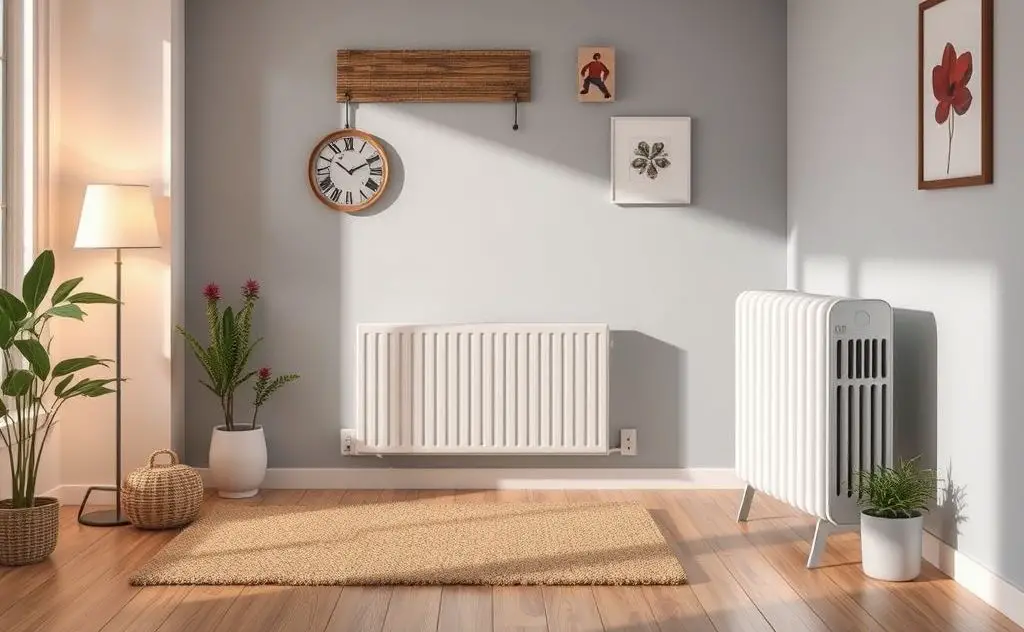To save energy with electric heaters, choose energy-efficient models, use programmable thermostats, and maintain proper insulation in your space.
Electric heaters can be energy hogs if used improperly. But with the right type, settings, and habits, you can stay warm while keeping costs down. This guide covers practical strategies for maximizing efficiency with different electric heater types.

Most Efficient Electric Heater Types
Not all electric heaters are created equal. Some convert nearly 100% of energy into heat while others waste power. Here are the most efficient options:
Infrared Heaters
Infrared models heat objects directly rather than warming air. They provide instant warmth and lose minimal heat to drafts. Units like the wood stove-style electric heaters combine efficiency with attractive designs.
Oil-Filled Radiators
These retain heat well and continue warming after turning off. The oil inside circulates naturally, requiring no fan. Look for models with adjustable thermostats and timers.
Ceramic Heaters
Ceramic elements heat quickly and distribute warmth evenly. Many include oscillation for better coverage. The low-wattage ceramic heaters work well for small spaces.

Energy-Saving Usage Tips
Zone Heating Strategy
Only heat occupied rooms instead of your whole home. Close doors and use draft stoppers to contain warmth where needed.
Optimal Thermostat Settings
Set between 60-68°F when awake and lower when sleeping or away. Each degree lower can save 3-5% on heating costs.
Smart Timing
Use programmable thermostats or timer plugs to automatically turn heaters off when not needed. Preheat rooms before use rather than running continuously.
| Heater Type | Best For | Avg. Wattage |
|---|---|---|
| Infrared | Spot heating | 600-1500W |
| Oil-filled | Medium rooms | 700-1500W |
| Ceramic | Small spaces | 400-1500W |
Essential Efficiency Upgrades
Insulation Improvements
Seal air leaks around windows/doors and add insulation to walls/attics. This reduces heat loss so heaters work less.
Thermal Curtains
Heavy curtains with thermal lining prevent warmth from escaping through windows at night.
Reflective Panels
Place heat-reflecting panels behind radiators to direct warmth into rooms rather than walls.
Maintenance for Peak Performance
Regular Cleaning
Dust buildup on heating elements and fans reduces efficiency. Clean monthly during use.
Filter Replacement
For forced-air units, replace filters every 1-3 months to maintain airflow.
Professional Tune-ups
Have electric baseboards and wall heaters serviced every 2-3 years to ensure proper function.
According to Energy.gov, proper heater maintenance can improve efficiency by up to 25%. For maximum savings, consider upgrading to an ENERGY STAR certified model when replacing old units.
Portable electric heaters from brands like ViaAqua offer efficient supplemental heating when sized and used correctly. Always follow manufacturer safety guidelines.
